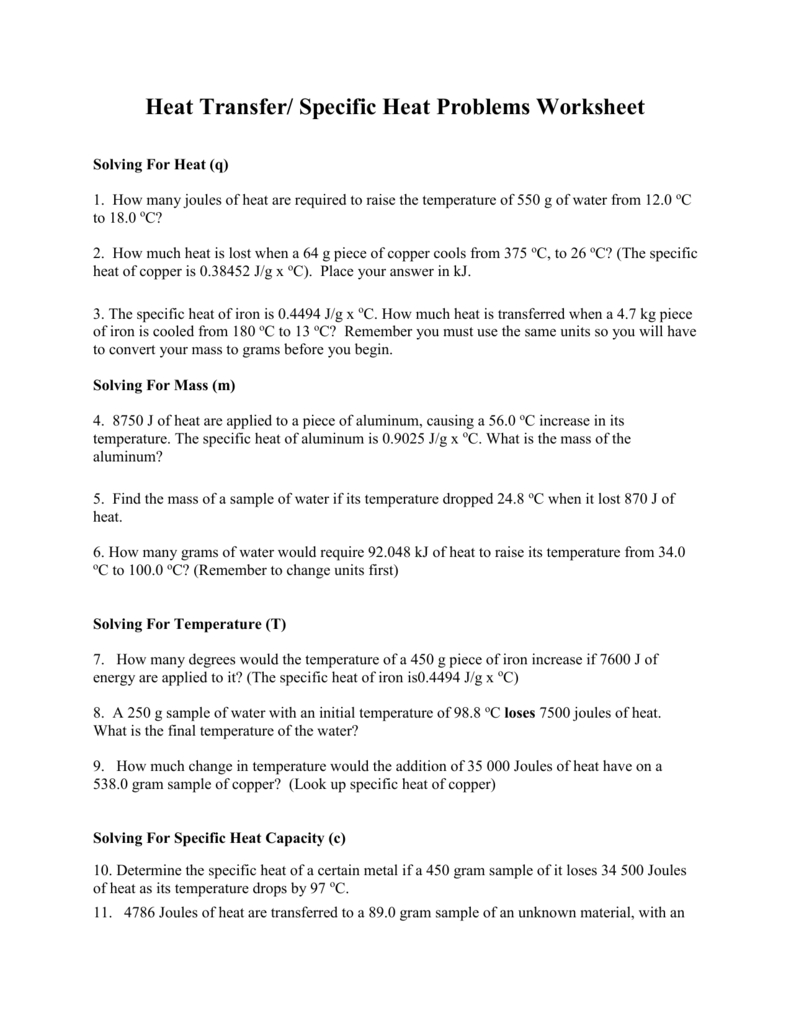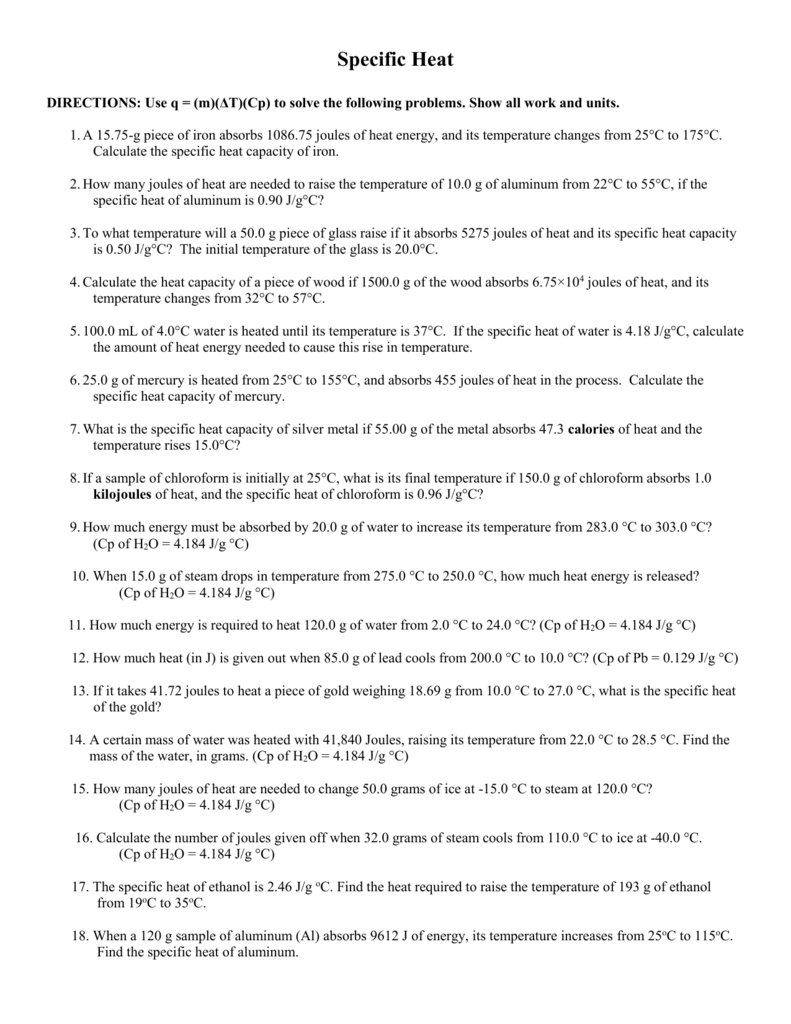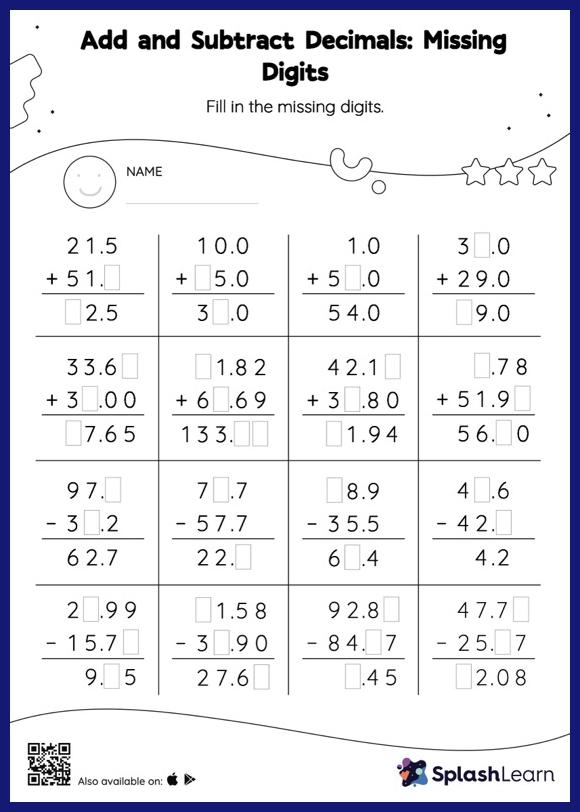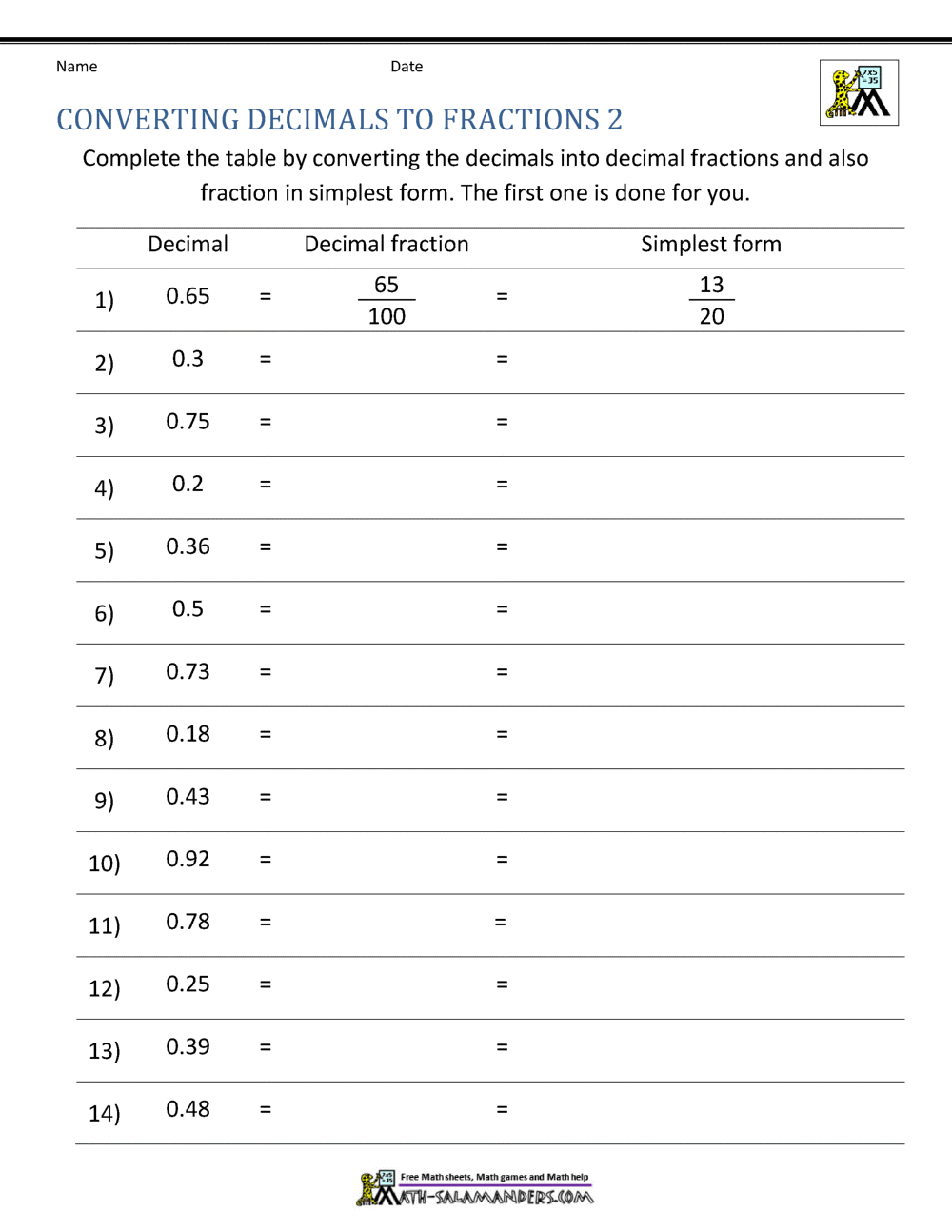Specific Heat Problems Worksheet and Solutions

Understanding Specific Heat Capacity
Specific heat capacity is the amount of heat energy required to raise the temperature of a unit mass of a substance by one degree Celsius (or Kelvin). It is a measure of a substance’s ability to absorb and release heat energy. In this worksheet, we will explore some problems related to specific heat capacity and provide solutions to help you better understand the concept.
Problem 1: Calculating Specific Heat Capacity
A 50g sample of copper is heated from 20°C to 80°C. If 1200 J of heat energy is required to achieve this temperature change, what is the specific heat capacity of copper?
🔥 Note: The formula to calculate specific heat capacity is: c = Q / (m × ΔT), where c is the specific heat capacity, Q is the amount of heat energy, m is the mass of the substance, and ΔT is the change in temperature.
Solution:
Given values: m = 50g = 0.05 kg (converting grams to kilograms) Q = 1200 J ΔT = 80°C - 20°C = 60°C
Using the formula: c = Q / (m × ΔT) = 1200 J / (0.05 kg × 60°C) = 1200 J / 3 kg°C = 400 J/kg°C
Therefore, the specific heat capacity of copper is 400 J/kg°C.
Problem 2: Determining the Amount of Heat Energy
A 200g sample of water is heated from 10°C to 50°C. If the specific heat capacity of water is 4186 J/kg°C, what is the amount of heat energy required to achieve this temperature change?
Solution:
Given values: m = 200g = 0.2 kg (converting grams to kilograms) c = 4186 J/kg°C ΔT = 50°C - 10°C = 40°C
Using the formula: Q = m × c × ΔT = 0.2 kg × 4186 J/kg°C × 40°C = 33488 J
Therefore, the amount of heat energy required is 33488 J.
Problem 3: Comparing Specific Heat Capacities
Compare the specific heat capacities of copper and water. Which substance requires more heat energy to raise its temperature by 1°C?
Solution:
Specific heat capacity of copper = 400 J/kg°C Specific heat capacity of water = 4186 J/kg°C
Since the specific heat capacity of water is higher than that of copper, water requires more heat energy to raise its temperature by 1°C.

| Substance | Specific Heat Capacity (J/kg°C) |
|---|---|
| Copper | 400 |
| Water | 4186 |
Problem 4: Real-World Application
A car engine is made of a mixture of metals, including copper and aluminum. If the engine has a mass of 100 kg and is heated from 20°C to 80°C, how much heat energy is required to achieve this temperature change? Assume the specific heat capacity of the engine is a weighted average of the specific heat capacities of copper and aluminum.
Solution:
Given values: m = 100 kg ΔT = 80°C - 20°C = 60°C
Assuming the engine is 50% copper and 50% aluminum, we can calculate the weighted average specific heat capacity:
c = (0.5 × 400 J/kg°C) + (0.5 × 900 J/kg°C) = 200 J/kg°C + 450 J/kg°C = 650 J/kg°C
Using the formula: Q = m × c × ΔT = 100 kg × 650 J/kg°C × 60°C = 3900000 J
Therefore, the amount of heat energy required is approximately 3.9 million Joules.
In summary, specific heat capacity is a crucial concept in thermodynamics, and understanding how to calculate and compare it can help us solve real-world problems.
What is specific heat capacity?
+Specific heat capacity is the amount of heat energy required to raise the temperature of a unit mass of a substance by one degree Celsius (or Kelvin).
How is specific heat capacity calculated?
+Specific heat capacity is calculated using the formula: c = Q / (m × ΔT), where c is the specific heat capacity, Q is the amount of heat energy, m is the mass of the substance, and ΔT is the change in temperature.
What is the difference between specific heat capacity and heat capacity?
+Specific heat capacity is the amount of heat energy required to raise the temperature of a unit mass of a substance by one degree Celsius (or Kelvin), while heat capacity is the total amount of heat energy required to raise the temperature of a substance by a given amount.
Related Terms:
- Specific heat Worksheet pdf
- Specific heat capacity problems
- Specific heat Worksheet #1
- Specific heat Practice problems
- Heat capacity worksheet



